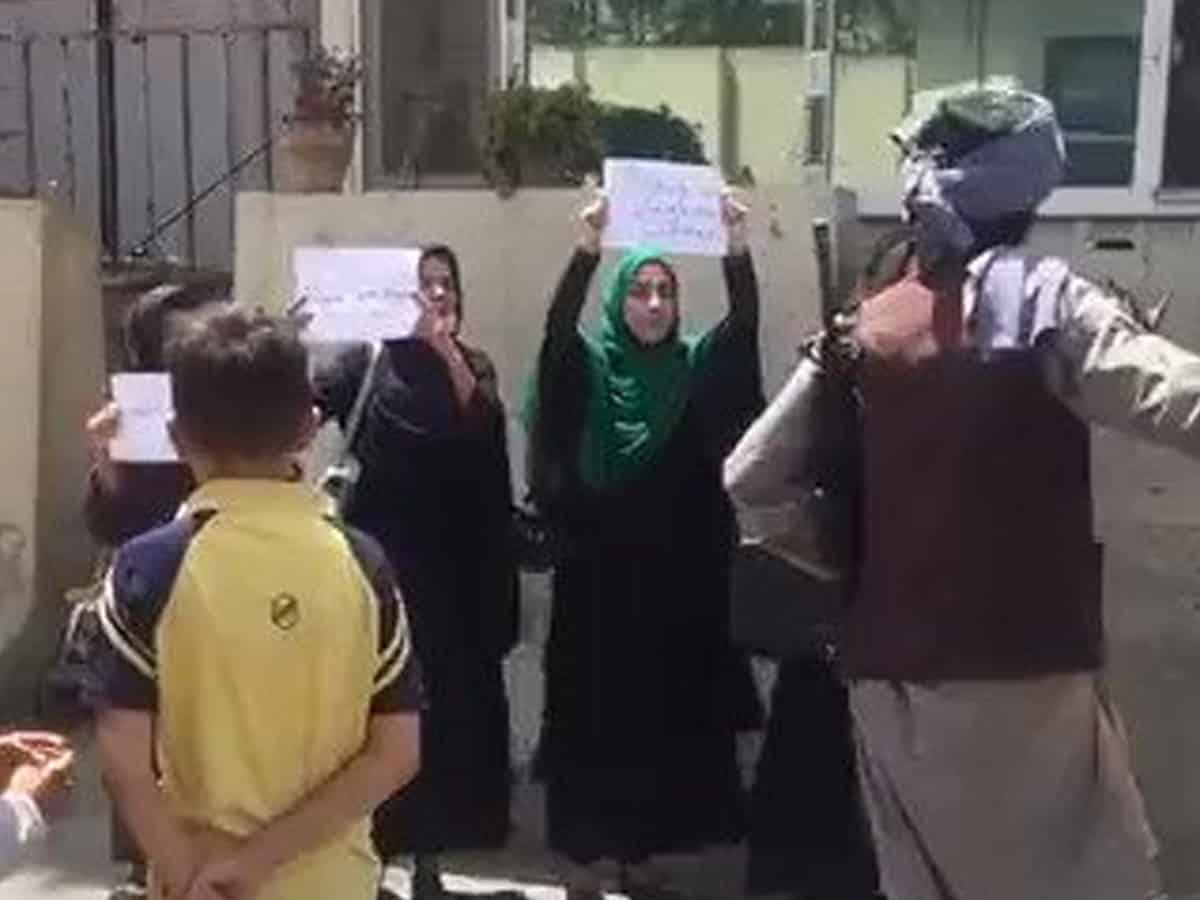
New Delhi: In the year that has passed since the Taliban’s takeover in Afghanistan, the world has seen daily and continuous deterioration in the situation of women and girls in the war-torn nation and this has spanned every aspect of their human rights, from living standards to social and political status, UN Under-Secretary-General and Executive Director of UN Women, Sima Bahous, said on Monday.
Monday marks a year since the fall of Kabul to the Taliban, with basic women’s rights suppressed, media freedom curtailed and large swathes of the country plunged into poverty.
No country has recognised the Taliban’s de facto government and women have taken to the streets in Afghanistan to denounce the restrictions on their rights to education, work and freedom of movement.
It has been a year of increasing disrespect for their right to live free and equal lives, denying them opportunity to livelihoods, access to healthcare and education, and escape from situations of violence.
The Taliban’s meticulously constructed policies of inequality set Afghanistan apart. It is the only country in the world where girls are banned from going to high school. There are no women in the Taliban’s cabinet, no Ministry of Women’s Affairs, thereby effectively removing women’s right to political participation, said Bahous in a statement.
Women are, for the most part, also restricted from working outside the home, and are required to cover their faces in public and to have a male chaperone when they travel. Furthermore, they continue to be subjected to multiple forms of gender-based violence.
This deliberate slew of measures of discrimination against Afghanistan’s women and girls is also a terrible act of self-sabotage for a country experiencing huge challenges, including from climate-related and natural disasters to exposure to global economic headwinds that leave some 25 million Afghan people in poverty and many hungry.
The exclusion of women from all aspects of life robs the people of Afghanistan of half their talent and energies. It prevents women from leading efforts to build resilient communities and shrinks Afghanistan’s ability to recover from crisis. There is a clear lesson from humanity’s all too extensive experience of crisis, said the Executive Director of UN Women.
Without the full participation of women and girls in all aspects of public life there is little chance of achieving lasting peace, stability and economic development.
Urging the de facto authorities to open schools for all girls, to remove constraints on women’s employment and their participation in the politics of their nation, and to revoke all decisions and policies that strip women of their rights, she call for ending all forms of violence against women and girls.
“We urge the de facto authorities to ensure that women journalists, human rights defenders, and civil society actors enjoy freedom of expression, have access to information and can work freely and independently, without fear of reprisal or attack.”
The international community’s support for women’s rights and its investment in women themselves are more important than ever: in services for women, in jobs and women-led businesses, and in women leaders and women’s organizations. This includes not only support to the provision of humanitarian assistance but also continued and unceasing efforts at the political level to bring about change, she said.
The UN Women has remained in country throughout this crisis and will continue to do so.
“We are steadfast in our support to Afghan women and girls alongside our partners and donors. We are scaling up the provision of life-saving services for women, by women, to meet overwhelming needs.
“We are supporting women-led businesses and employment opportunities across all sectors to help lift the country out of poverty. We are also investing in women-led civil society organizations to support the rebuilding of the women’s movement.
“As everywhere in the world, civil society is a key driver of progress and accountability on women’s rights and gender equality. Every day, we advocate for restoring, protecting, and promoting the full spectrum of women’s and girls’ rights. We are also creating spaces for Afghan women themselves to advocate for their right to live free and equal lives,” said the UN Under-Secretary-General.

